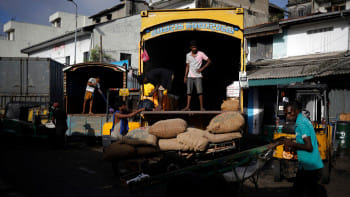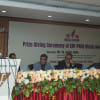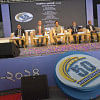Trust deficit hampering South Asian integration

At the recent South Asia Economic Summit, speakers agreed on the importance of greater regional connectivity to boost trade and integration within South Asia. According to data, despite there being a steady growth in regional trade over the past two decades, the change is still extremely limited when compared to the region's levels of bilateral trade with mostly Western countries.
Given that Bangladesh, Nepal and Bhutan are expected to graduate from the group of least-developed countries in the next few years—which will affect their current status in terms of access to international markets—we wholeheartedly agree with the need for deeper integration becoming a crucial part of the region's long-term plans. However, it has also become apparent that there are a number of obstacles standing in the way.
We can no longer allow a trust deficit to stand in the way of integration, which will allow our countries to benefit from trade and fight climate change.
Speakers at the summit identified weak infrastructure, restrictive tariffs and duties, import restraints, customs delays and requirements, and rigid bureaucracies as some of the barriers that have limited South Asian countries from building economic corridors and accessing the untapped potential of its markets. However, a lack of political consensus amongst the leaders of South Asian countries was considered the major reason for most attempts at integration falling through the cracks so far, despite there already being a number of existing initiatives set up for this purpose.
The shock of the pandemic and the Ukraine war, whose economic impacts have reverberated across South Asia as well, have shown us that it is bad policy to put one's eggs in one basket. Clearly, there is a need for expanding into multilateral trade opportunities instead of becoming dependent on bilateral trade with select major players. It is also important to remember that South Asia is facing a collective fight against climate change that is affecting the region's food and energy security—creating a situation that will only grow worse if effective regional policies are not put into place.
We can no longer allow a trust deficit to stand in the way of integration, which will allow our countries to benefit from trade and fight climate change. We urge South Asian leaders to set aside their political differences and work together to fulfil their responsibility to the people in the region.

 For all latest news, follow The Daily Star's Google News channel.
For all latest news, follow The Daily Star's Google News channel. 









Comments